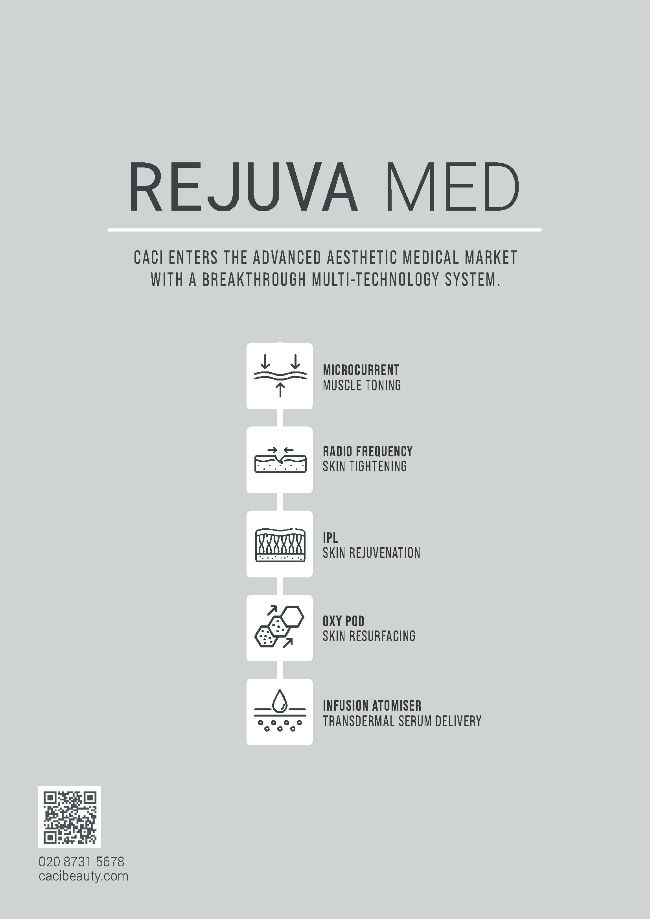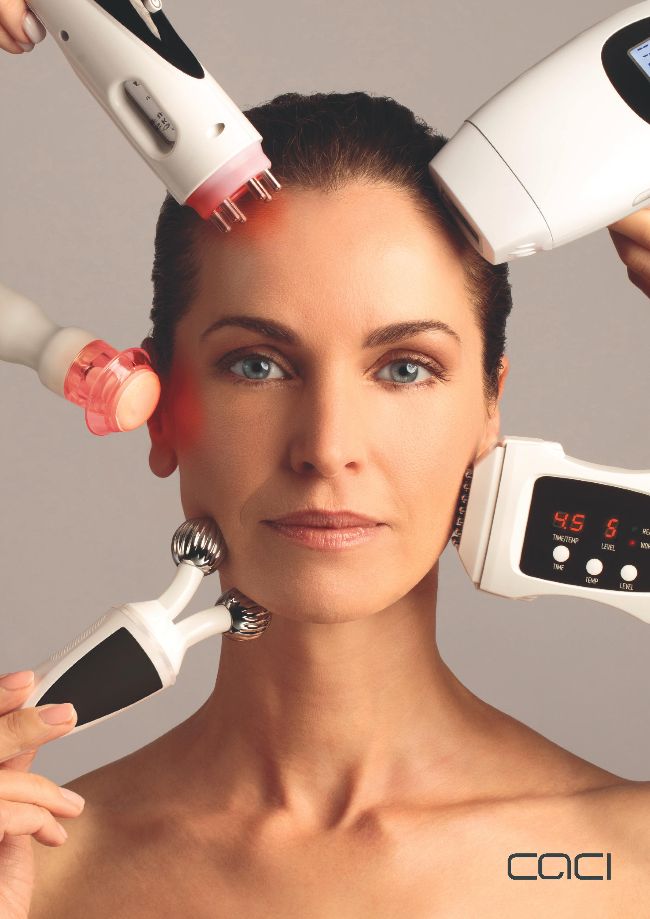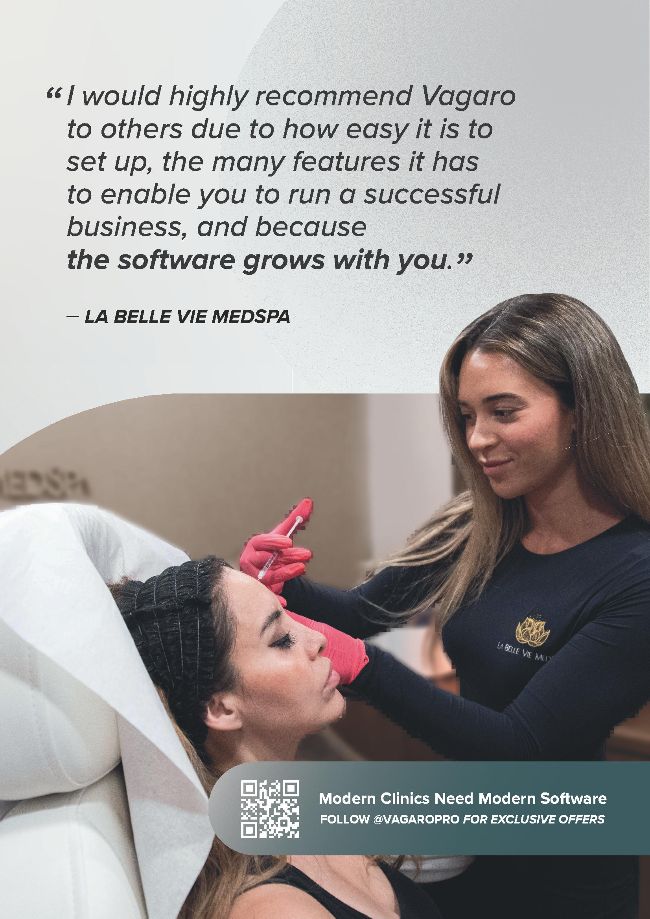CLINICAL
MANAGING PCOS
Tracey Dennison discusses skin integrity and integrative aesthetic– endocrine management with Polycystic Ovary Syndrome (PCOS)
TRACEY DENNISON
Tracey Dennison is the Consultant Nurse Practitioner at East Riding Aesthetics & Wellness, a multi-award-winning clinic which specialises in lifestyle medicine and menopause care alongside restorative and regenerative medical aesthetic treatments. Tracey has been nursing for over 30 years and is the Aesthetic Medicine Award’s Nurse of the Year 2023. She is a BMS Advanced Specialist trained in Lifestyle Medicine (BSLM).
Polycystic Ovary Syndrome (PCOS) affects up to 13% of women of reproductive age. It presents with menstrual irregularities, insulin resistance, androgen excess, and a range of aesthetic concerns, such as acne, hirsutism, and hair thinning. Standard treatments, including Combined Oral Contraceptives (COCs), retinoids, and hair removal methods, effectively target symptoms but can compromise skin integrity, potentially accelerating dermatological ageing.
This article proposes a holistic management framework encompassing lifestyle medicine (nutrition, exercise, sleep, stress, tobacco and alcohol moderation, relationships, and environmental exposure), pharmacotherapy, evidence-based supplements (including mint tea), aesthetic treatments, and skincare strategies. The combined approach seeks to optimise both endocrine and aesthetic outcomes while preserving the integrity and function of the skin.
INTRODUCTION AND PATHOPHYSIOLOGY
PCOS is diagnosed using the Rotterdam criteria, which require two out of the following three features: ovulatory dysfunction, hyperandrogenism (clinical or biochemical), and polycystic ovarian morphology.1 The syndrome has multifaceted effects on reproductive, metabolic, and psychological health. In everyday clinical practice, patients frequently present with cosmetic concerns – particularly acne, excessive facial hair, and diffuse scalp hair thinning – symptoms underpinned by androgen excess and insulin resistance. These dermatological issues often serve as both diagnostic cues and key motivators for seeking medical care. However, medicinal care alone leaves the patient in a state of suboptimal disease management, which is why considering lifestyle impacts and in particular, the Pillars of Lifestyle Medicine as per the British Society of Lifestyle Medicine, is essential in providing optimal patient care.2
LIFESTYLE MEDICINE: PILLARS OF EVIDENCE-BASED PRACTICE IN PCOS
Lifestyle medicine consists of eight key domains that have demonstrated benefits in managing PCOS.
Whole-food, anti-inflammatory diet
Diets rich in whole grains, healthy fats (e.g., oily fish, olive oil), lean protein, and fibre-rich vegetables – such as Mediterranean and low-GI dietary patterns – have been shown in RCTs to lower HOMA-IR, reduce fasting insulin and testosterone, restore menstrual cyclicity, and enhance skin quality in women with PCOS. Concurrently, omega-3 PUFA supplementation has demonstrated significant reductions in HOMA-IR, serum lipids, CRP, LH, testosterone, and increases in SHBG and antioxidant capacity based on meta-analyses of multiple RCTs.3
Furthermore, omega-3 fatty acids from oily fish have been associated with significant improvements in HOMA-IR, lipid profiles, C-reactive protein, total testosterone, and SHBG levels, according to a 2023 meta-analysis of randomised controlled trials.4
Physical activity
Structured aerobic and resistance training, totalling at least 150 minutes per week, has a direct effect on reducing insulin resistance, improving ovulatory function, and supporting mood. Regular exercise also benefits skin health by enhancing vascular perfusion and mitochondrial function.5-6Exercise interventions have demonstrated mental health benefits in half of clinical PCOS trials and improved depressive and anxiety symptoms in cross-sectional studies.7-9Physical activity is also consistently associated with lower rates of depression in PCOS cohorts.
Sleep quality
Sleep disturbances are prevalent in PCOS and contribute to insulin resistance, increased cortisol, and disrupted endocrine rhythms. Improving sleep through sleep hygiene interventions and treating underlying conditions such as obstructive sleep apnoea can restore hormonal balance and improve skin appearance and health.1,10
Stress management
Chronic psychological stress is a known driver of cortisol excess, which further disrupts insulin metabolism and ovarian function. It also contributes to premature ageing via inflammatory pathways. Mindfulness-based interventions, cognitive behavioural therapy, and yoga have all demonstrated benefit in reducing PCOS-related distress and improving clinical outcomes.5,10
Risky substances
Cigarette smoking worsens insulin resistance, promotes oxidative stress, and contributes to both androgenic activity and dermal collagen breakdown, thereby exacerbating both PCOS and skin ageing.11
Even moderate alcohol intake can worsen liver steatosis, reduce insulin sensitivity, and disrupt sleep, thereby worsening the hormonal and aesthetic manifestations of PCOS.11
Healthy relationships and social support
A strong social network improves adherence to treatment plans, reduces stress-related hormonal dysregulation, and supports long-term behavioural change. Patients with strong relational support often demonstrate better emotional and dermatological outcomes.5
Environmental toxin reduction
Avoiding endocrine-disrupting chemicals such as parabens, phthalates, and pesticides supports hormonal homeostasis and reduces dermal reactivity and inflammation.12
Medical and aesthetic therapies
Pharmacological strategies must balance endocrine efficacy with dermatological safety:
• Combined Oral Contraceptives (COCs) – particularly those containing drospirenone – effectively lower free testosterone and increase sex hormone-binding globulin (SHBG), improving hirsutism and acne1
• Anti-androgens – such as spironolactone and cyproterone acetate –are effective for more severe androgenic symptoms, although long-term use may lead to skin dryness or irritation
• Metformin not only improves metabolic and endocrine parameters in PCOS but has also been shown to protect against skin photo-ageing and support dermal regeneration. A 2022 study demonstrated that metformin attenuates UVA-induced skin ageing by inhibiting mitophagy and the PI3K/AKT/mTOR pathway, thus reducing dermal collagen degradation, improving epidermal thickness, and enhancing skin integrity in both in vitro human dermal fibroblast cultures and in vivo animal models.5 Furthermore, in a 2022 rat model study, topical metformin improved dermal collagen deposition, re-epithelialisation, and micro-vascularisation, supporting healing in mechanically stretched skin Isotretinoin – though highly effective for cystic acne – frequently causes mucocutaneous dryness, skin fragility, and increased photosensitivity13
• Topical retinoids remain a cornerstone of acne and anti-ageing therapy, but may significantly impair the skin barrier if not carefully managed. A 2019 systematic review found that while retinoids substantially improve acne severity and texture, 28– 60% of patients experience adverse effects such as erythema, flaking, burning, and photosensitivity – particularly in the first four weeks of therapy.13
SKIN INTEGRITY AND IATROGENIC DERMATOLOGICAL AGEING
While these therapies are effective, many of them, particularly retinoids and hair removal techniques, can accelerate the visible signs of ageing or damage the skin barrier. Key mechanisms include:
• Skin barrier disruption – caused by isotretinoin or overuse of topical retinoids, leading to dryness, increased trans-epidermal water loss, and flaking14
• Photosensitivity and erythema – following use of retinoids and waxing-based hair removal
• Post-inflammatory hyperpigmentation and folliculitis – commonly seen after frequent waxing, especially in individuals with darker skin tones
• Collagen breakdown – potentiated by oxidative stress, steroid use, and unprotected UV exposure.
EVIDENCE-BASED SUPPLEMENTS AND BOTANICALS
1. Mint tea (spearmint) – has been shown in randomised controlled trials to lower free and total testosterone and improve hirsutism and acne severity in women with PCOS.15-17
2. Vitamin D, omega 3 fatty acids, and inositol are the most commonly used and promising supplements among women with PCOS, with emerging evidence for cinnamon, curcumin, sage, and fennel, all of which support glycaemic control, inflammation reduction, and menstrual regulation.18
3. Omega-3 fatty acids and melatonin – provide additional anti-inflammatory and hormonal regulation, improving both systemic health and dermal appearance.19-20
Supplementation needs to be undertaken with care and individualised to specific patient needs appreciating the trials in supplements are usually small scale and that supplement quality, efficacy and bioavailability can vary greatly between manufacturers. Respect also needs to be given to dosage and clearance mechanisms in order to keep our patients safe.
CLINICAL CASE
A peri-menopausal, 48-year-old patient presented with PCOS; she had symptoms of androgenisation, including hirsutism, which was causing significant psychological distress. During her consultation, we discussed the benefits of lifestyle interventions such as stress management, reduced toxins (ingested and environmental) and made changes to her diet, supplements and skin routines. We also tried increasing the patient’s uptake of spearmint tea. Following diligent compliance with all recommendations, the patient was reviewed four months later. At this point, her facial hair growth had markedly reduced, and other troublesome androgenic features, specifically hair loss, were seen to be improving. The patient’s mental health was improving as a result of her perceived improvement in her physical appearance. In conjunction with the patient’s Primary Care GP, we then looked to include a drospirenone progesterone only pill for its anti androgenic impact, alongside Metformin to improve her insulin sensitivity. A significant positive impact was made on the patients ‘ physical, social, psychological and spiritual wellbeing as a direct result of this fully holistic management plan.
CONCLUSION
Managing PCOS requires an integrated approach that addresses the endocrine, metabolic, and aesthetic domains of patient care.21 Lifestyle medicine offers a powerful, evidence-based foundation22 , while targeted pharmacotherapy and supplements should be carefully chosen to minimise side effects and maximise outcomes. Equally important is safeguarding the skin from iatrogenic damage – particularly in a patient population already vulnerable to dermatological distress. Clinicians should adopt a proactive stance in skincare education, individualised treatment planning, and the careful selection of aesthetic interventions to promote enduring health and confidence.
REFERENCES
1. Teede, H.J., Misso, M.L., Costello, M.F., et al., 2018. International evidence-based guideline for the assessment and management of polycystic ovary syndrome. Human Reproduction, 33(9), pp.1602–1618. Available at: https://pubmed.ncbi.nlm.nih.gov/30052961/
2. British Society of Lifestyle Medicine, n.d. [accessed 24 July 2025]; available at: https://bslm.org.uk/lifestyle-medicine/what-is-lifestyle-medicine/
3. Mirzaei, A. et al., 2018. Effectiveness of omega 3 fatty acid supplementation on insulin resistance and lipid profile in women with PCOS: a systematic review and meta-analysis of randomised controlled trials. Reproductive Biology and Endocrinology, 16, 115.
Available at: https://www.ncbi.nlm.nih.gov/pmc/articles/PMC5870911/
4. Chen Q, Zhang H, Yang Y, Zhang S, Wang J, Zhang D, Yu H. Metformin Attenuates UVA-Induced Skin Photoaging by Suppressing Mitophagy and the PI3K/AKT/mTOR Pathway. Int J Mol Sci. 2022 Jun 23;23(13):6960. doi: 10.3390/ ijms23136960. PMID: 35805987; PMCID: PMC9266365.Available at: Metformin Attenuates UVA-Induced Skin Photoaging by Suppressing Mitophagy and the PI3K/AKT/mTOR Pathway - PubMed
5. Cheng, S.W.M. et al, 2024. The potential of exercise on lifestyle and skin function: narrative review. JMIR Dermatology, 7:e51962.Available at: https://derma.jmir. org/2024/1/e51962
6. Moran, L.J., Hutchison, S.K., Norman, R.J. and Teede, H.J., 2011. Lifestyle changes in women with polycystic ovary syndrome. Cochrane Database of Systematic Reviews, (7):CD007506. Available at: https://pubmed.ncbi.nlm.nih. gov/21735412/
7. Banting, L.K., Gibson-Helm, M., Polman, R., Teede, H.J. and Stepto, N.K., 2014. Physical activity and mental health in women with polycystic ovary syndrome. BMC Women’s Health, 14(1), p.51.
Available at: https://pubmed.ncbi.nlm.nih.gov/24674140/
8. Patten, R.K., Pascoe, M.C., Moreno-Asso, A., Boyle, R.A., Stepto, N.K. and Parker, A.G., 2021. Effectiveness of exercise interventions on mental health and health-related quality of life in women with PCOS: a systematic review. BMC Public Health, 21, 2310.
Available at: https://bmcpublichealth.biomedcentral.com/articles/10.1186/s12889-021-12280-9
9. Patten, R.K., McIlvenna, L.C., Moreno-Asso, A., Hiam, D., Stepto, N.K. and Rosenbaum, S., 2023. Efficacy of high-intensity interval training for improving mental health and health-related quality of life in women with PCOS.
Scientific Reports, 13, 3025.
Available at: https://www.ncbi.nlm.nih.gov/pmc/articles/PMC9944288/
10. Mesa, D., Feingold, A. and Sun, L., 2022. PCOS: a weight inclusive and practical approach to lifestyle interventions. Journal of Clinical Endocrinology & Diabetes, 15(2), e1–e12. Available at: https://journals.sagepub.com/doi/full/10.1177/2633559X221103568
11. Gulati, K., 2023. Lifestyle modifications in PCOS: update. Healio Women’s Health & OB-GYN. Available at: https://www.healio.com/news/womens-health-obgyn/20231031/therapeutic-lifestyle-modifications-play-important-role-in-pcosmanagement
12. Boberg, J., Taxvig, C., Christiansen, S. and Axelstad, M. (2010) ‘Possible endocrine disrupting effects of parabens and their metabolites’, ResearchGate. Available at: https://www.researchgate.net/publication/229046903_Possible_endocrine_ disrupting_effects_of_parabens_and_their_metabolites
13. Zaenglein, A.L., et al., 2016. Guidelines of care for acne vulgaris. Journal of the American Academy of Dermatology, 74(5), pp.945–973. Available at: https://pubmed.ncbi.nlm.nih.gov/27062050/
14. Draelos, Z.D. and Madison, K.C., 2010. Topical retinoids in dermatology. Dermatologic Clinics, 28(1), pp.27–41. Available at: https://pubmed.ncbi.nlm.nih. gov/30674002/
15. Akdoğan, M., Tamer, M.N., Cüre, E., Cüre, M.C., Köroğlu, B.K. and Delibaş, N., 2007. Effect of spearmint teas on androgen levels in women with hirsutism. Phytotherapy Research, 21(5), pp.444–447. Available at: https://pubmed.ncbi. nlm.nih.gov/17310494/
16. Bucciantini, L. et al., 2024. 12 week spearmint tea reduces androgens in women with PCOS and non PCOS. Journal of the Academy of Nutrition and Dietetics. Available at: https://www.jandonline.org/article/S2212-2672(24)00364-2/fulltext
17. Grant, P., 2010. Spearmint herbal tea has significant anti androgen effects in PCOS: a randomised controlled trial. Phytotherapy Research, 24(2), pp.186–188. Available at: https://pubmed.ncbi.nlm.nih.gov/19585478/
18. Scannell, N., Mantzioris, E., Rao, V., Pandey, C., Ee, C., Mousa, A., Moran, L. and Villani, A., 2023. Type and frequency in use of nutraceutical and micronutrient supplementation for the management of polycystic ovary syndrome: a systematic scoping review. Biomedicines, 11(12), 3349. Available at: https://doi. org/10.3390/biomedicines11123349
19. Farhoudian A, Farrokhi M, 2024. Anti-aging strategies to Prevent Diseases: Promoting Longevity and Optimal Health. Available at: (PDF) Anti-Aging Strategies to Prevent Diseases: Promoting Longevity and Optimal Health
20. Xu, Y. et al., 2021. Meta-analysis of the efficacy of omega 3 polyunsaturated fatty acids on hormones and inflammatory parameters in women with PCOS. Annals of Palliative Medicine, 10(6), pp.6425–6437.
Available at: https://pubmed.ncbi.nlm.nih.gov/34488386/
21. Misso, M.L., Costello, M.F., et al., 2018. International evidence-based guideline for assessment and management of PCOS. Human Reproduction, 33(9), pp.1602– 1618. Available at: https://academic.oup.com/humrep/article/33/9/1602/5050783
22. Cowan S, Lim S, Alycia C, Pirotta S, Thomson R, Gibson-Helm M, Blackmore R, Naderpoor N, Bennett C, Ee C, Rao V, Mousa A, Alesi S, Moran L. Lifestyle management in polycystic ovary syndrome - beyond diet and physical activity. BMC Endocr Disord Lifestyle management in polycystic ovary syndrome - beyond diet and physical activity - PubMed



